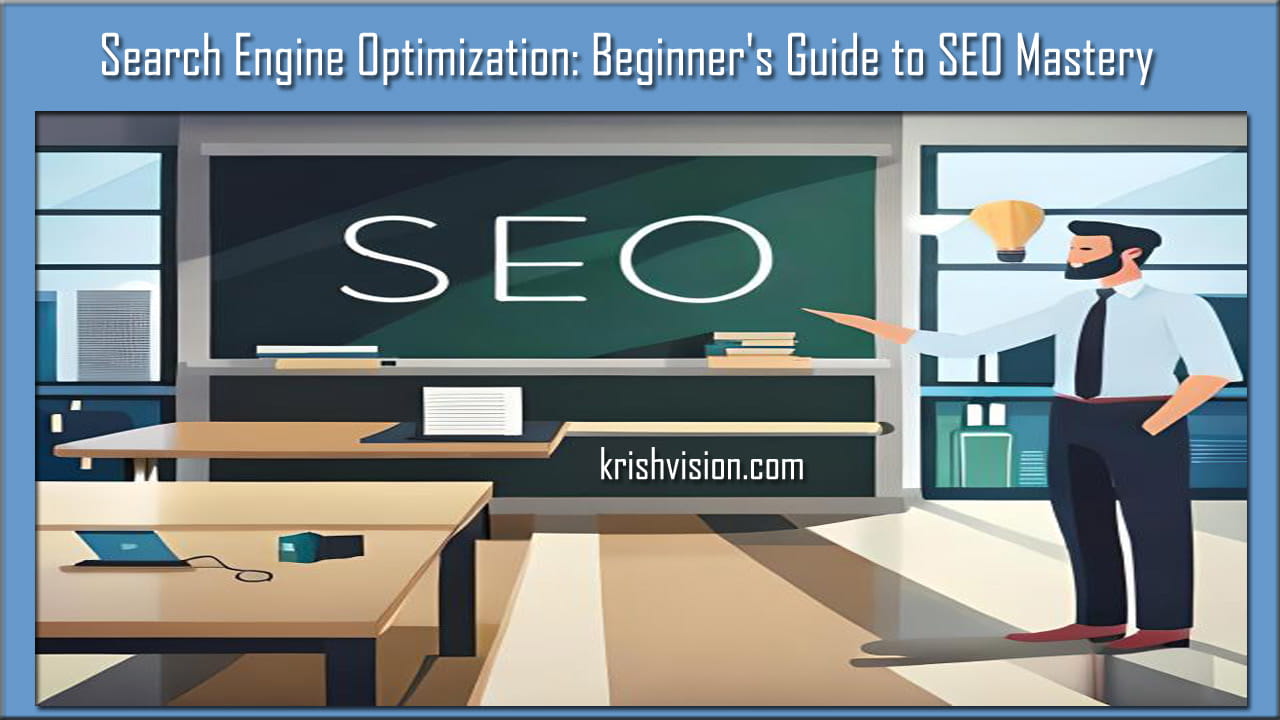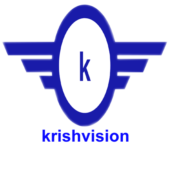
In this article “Search Engine Optimization: Beginner’s Guide to SEO Mastery“, we discover the power of Search Engine Optimization (SEO) and its impact on your online presence. Learn why SEO is crucial, understand your target audience, prioritize user experience, and create engaging content. Stay updated with trends and algorithms to enhance your search rankings and drive organic traffic.
Definition and importance of SEO
Understand the essence of Search Engine Optimization (SEO) and its significance in the digital landscape. Learn how SEO improves visibility, drives organic traffic, and boosts brand credibility. Implement effective SEO strategies, conduct keyword research, and optimize your website to outrank competitors and attract targeted visitors.
Read More! Skyrocket Your Website’s Success with an Effective SEO Audit Checklist
How SEO (Search Engine Optimization) helps businesses?
Search Engine Optimization (SEO) offers numerous advantages for businesses. It improves online visibility, allowing potential customers to discover your brand easily. By targeting relevant keywords and optimizing website content, SEO helps attract organic traffic, increase brand credibility, and drive conversions. For instance, a local bakery implementing SEO strategies can appear in search results for queries like “best bakery in [city],” attracting local customers and boosting sales. Embrace SEO to amplify your business’s online success.
Overview of the beginner’s guide
In this beginner’s guide to SEO, we will demystify the world of Search Engine Optimization and provide you with actionable insights. You’ll gain a solid understanding of how search engines work, keyword research techniques, on-page and off-page optimization strategies, technical SEO essentials, measuring success, and best practices to follow. Whether you’re new to SEO or seeking to enhance your existing knowledge, this guide will equip you with the necessary tools for success.
Read More! Iconic Inspiration: How the Noun Project Can Fuel Your Creative Journey
Understanding Search Engines

To excel in SEO, it’s essential to comprehend how search engines operate. Learn about search engine algorithms, the factors influencing search rankings, and the importance of user intent. Discover techniques to optimize your website for better visibility and user experience. For example, by understanding that search engines prioritize high-quality content, you can focus on creating valuable and informative content that aligns with user search queries, improving your chances of ranking higher in search results.
How do search engines work?
To navigate the world of SEO, it’s vital to grasp how search engines function. Search engines employ complex algorithms to crawl, index, and rank web pages. They send out bots, known as crawlers or spiders, to scour the internet and gather information about websites. These crawlers analyze various factors like keywords, content relevance, backlinks, and user experience to determine the ranking of web pages.
Optimizing your website for search engines involves creating high-quality content, using relevant keywords, improving site structure, and obtaining authoritative backlinks. By understanding search engine processes, you can implement effective SEO strategies to enhance your website’s visibility and attract organic traffic.
Read More! Local SEO Services for Businesses
Key search engine algorithms
Search engine algorithms determine the position of web pages in search results. Familiarize yourself with prominent algorithms like Google’s PageRank and RankBrain, which consider relevance, authority, and user engagement. By understanding these algorithms, you can optimize your website to align with their requirements and improve your search rankings.
Read More! Social Media Marketing for Startups
Factors influencing search rankings
Numerous factors influence how search engines rank web pages. These include relevant keywords, quality content, backlinks, website performance, user experience, and social signals. By focusing on these elements, optimizing your website, and providing a seamless user experience, you can improve your chances of achieving higher search rankings and attracting organic traffic.
Read More! Effective Content Marketing Strategies
Keyword Research

Keyword research is crucial for effective SEO. It involves identifying the words and phrases users search for when seeking information or products related to your business. Tools like Google Keyword Planner and SEMrush can help you discover relevant keywords. Incorporate these keywords strategically into your content to attract targeted traffic and improve search rankings.
Read More! Digital marketing tips and tricks
Importance of keywords
The keyword is the Backbone of Effective SEO. Keywords play a vital role in SEO by connecting your content to user search queries. They help search engines understand the relevance of your content and match it with user intent. Conducting thorough keyword research enables you to optimize your website, attract targeted traffic, and increase the chances of ranking higher in search results.
Tools for keyword research
When it comes to keyword research, several tools can assist you in uncovering valuable insights. Here are some popular tools and their key features:
Google Keyword Planner
- Provides search volume data and keyword suggestions.
- Helps identify relevant keywords based on user search behavior.
- Allows you to refine keyword ideas and estimate their potential traffic.
SEMrush
- Offers comprehensive competitor analysis.
- Provides keyword difficulty metrics to assess competitiveness.
- Helps uncover long-tail keywords and niche opportunities.
Ahrefs
- Allows you to explore backlinks and analyze competitor strategies.
- Provides keyword research features to discover new opportunities.
- Offers insights into keyword search volumes and trends.
Tips:
Use a combination of tools to gather a comprehensive range of keyword insights. Focus on long-tail keywords that are more specific and have less competition. Focus on long-tail keywords that are more specific and have less competition. Consider the search volume and competition level when selecting keywords. Continuously monitor and update your keyword strategy based on changing trends and user behavior.
Read More! Website Optimization Techniques
How to choose the right keywords?
Choosing the right keywords is essential for successful SEO. Follow these steps to make informed keyword decisions:
- Understand your audience: Research and identify the language, terms, and phrases your target audience uses when searching for products or services.
- Analyze keyword metrics: Utilize tools like Google Keyword Planner and SEMrush to assess search volume, competition, and keyword difficulty.
- Focus on relevance: Select keywords directly related to your content, ensuring they align with user search intent.
- Consider long-tail keywords: Target more specific, longer phrases that have less competition and better match user intent.
Example: Instead of targeting a broad keyword like “shoes,” opt for a more specific long-tail keyword like “comfortable running shoes for women” to attract highly relevant traffic interested in that specific product.
Read More! SEO Strategies for Small Business Success
On-Page SEO Optimization
On-page SEO optimization involves optimizing various elements within your web pages to improve search engine rankings. Focus on title tags, meta descriptions, URL structure, heading tags, image optimization, internal linking, and user-friendly navigation. By implementing these strategies, you can enhance your website’s visibility and attract organic traffic.
Title tags and meta descriptions
Title tags and meta descriptions are crucial on-page SEO elements. Craft compelling and descriptive titles to attract clicks. Optimize meta descriptions by summarizing page content concisely. Incorporate relevant keywords and maintain character limits. By optimizing these elements, you can improve click-through rates and enhance search engine visibility.
Read More! Transform Your Home with Green Living
URL structure and permalinks
URL structure and permalinks impact your website’s search engine visibility. Opt for clean, descriptive URLs that include relevant keywords. Avoid long, complex URLs and use hyphens to separate words. By optimizing your URL structure, you create user-friendly links that are easy to understand and improve your website’s SEO performance.
Read More! Explore the wonders of finger millet
Heading tags and content optimization
Heading tags (H1, H2, etc.) help search engines understand the hierarchy and organization of your content. Utilize relevant keywords in headings to improve keyword relevance. Optimize content by providing valuable information, incorporating keywords naturally, and using descriptive subheadings. This enhances user experience and boosts search engine visibility.
Read More! Plant Planting: The Art of Successful Gardening
Image optimization and alt tags
Image optimization plays a crucial role in SEO. Compress images to improve page loading speed. Use descriptive filenames and incorporate relevant keywords in alt tags. This helps search engines understand image content and improves accessibility. Optimized images enhance user experience and contribute to higher search engine rankings.
Internal linking and site navigation
Internal linking and site navigation are vital for SEO. Create a logical link structure to help search engines discover and index your pages efficiently. Use descriptive anchor text and strategically link to relevant internal pages. This improves user experience, facilitates website exploration, and boosts search engine rankings.
Off-Page SEO Optimization
Off-page SEO focuses on external factors that influence your website’s visibility and reputation. Build high-quality backlinks from authoritative websites, engage in guest posting and outreach strategies, and leverage social media signals. These efforts enhance your website’s credibility, increase referral traffic, and improve search engine rankings.
Link building and its significance
Link building is a crucial off-page SEO strategy. It involves acquiring high-quality backlinks from reputable websites. These links signal search engines that your website is trustworthy and relevant. Focus on natural link acquisition through content creation, guest posting, and outreach efforts to improve your website’s authority and search engine rankings.
Read More! How to Become a Computer Expert
Types of Backlinks and their quality
Understanding the types of backlinks and their quality is essential for effective SEO. Here are key points to consider:
- Editorial Backlinks: Highly valuable, natural links earned through high-quality content and reputation. Example: A renowned industry publication linking to your website’s informative article.
- Guest Post Backlinks: Links acquired by contributing guest posts to authoritative websites. Example: Writing a guest post for a popular blog including a link back to your website in the author bio.
- Directory Backlinks: Links from online directories. Example: List your business in industry-specific directories with a backlink to your website.
- Forum Backlinks: Links obtained from relevant forum discussions. Example: Contributing helpful answers on a forum thread and including a link to relevant content on your website.
Tips:
- Focus on acquiring high-quality backlinks from authoritative websites in your industry.
- Emphasize natural link building by creating valuable content that naturally attracts backlinks.
- Avoid spammy or low-quality link-building practices, as they can harm your website’s SEO performance.
Remember, the quality of backlinks matters more than the quantity. Aim for backlinks from reputable sources that are relevant to your website’s content and industry to improve your SEO rankings.
Read More! The journey toward a peaceful life
Guest posting and outreach strategies
Guest posting is an effective way to build backlinks and increase brand exposure. Identify authoritative websites in your niche, pitch valuable content ideas, and contribute high-quality guest posts. Engage in personalized outreach, build relationships, and leverage social media to amplify your content’s reach and enhance your SEO efforts.
Social media signals and their impact
Social media signals play a role in SEO by influencing website visibility and engagement. Build a strong social media presence, encourage content sharing, and engage with your audience. Social media signals like likes, shares, and comments indicate content relevance and popularity, positively impacting search engine rankings and organic traffic.
Technical SEO
Technical SEO focuses on optimizing the technical aspects of your website for search engines. Ensure fast site speed, mobile-friendliness, and proper indexation with XML sitemaps and robots.txt. Implement structured data with schema markup to enhance search engine understanding. Technical SEO ensures a smooth user experience and improved search engine visibility.
Site speed and mobile optimization
Optimizing site speed and mobile experience is crucial for SEO. Here are key points to consider:
1. Fast Loading Speed:
- Optimize images and enable browser caching.
- Minimize CSS and JavaScript files.
- Choose a reliable hosting provider.
2. Mobile-Friendly Design:
- Consider implementing AMP for faster mobile loading.
- Focus on delivering a seamless user experience on mobile devices.
Tips:
- Test site speed regularly using tools like Google PageSpeed Insights.
- Prioritize mobile optimization as mobile searches dominate.
- Optimize images without compromising quality.
- Minimize redirects and enable compression for faster loading.
XML sitemaps and robots.txt
XML sitemaps help search engines discover and understand your website’s structure and content. Robots.txt guides search engine bots on which pages to crawl and index. Proper implementation ensures efficient crawling, indexing, and visibility of your web pages, improving SEO performance.
Read More! How to prepare for an interview as a fresher
Canonical URLs and duplicate content
Canonical URLs address duplicate content issues by specifying the preferred version of a page. Duplicate content can harm SEO by diluting search rankings. Implement canonical tags to consolidate duplicate pages under a single authoritative URL. Regularly monitor and fix duplicate content to ensure search engines prioritize your preferred page version, maintaining the integrity and visibility of your website in search results.
Schema markup and structured data
Schema markup and structured data provide additional context to search engines about your website’s content. By implementing schema markup, you can enhance how search engines display your information in rich snippets and improve visibility. Utilize structured data to highlight important elements such as product details, reviews, recipes, and events. This structured approach enables search engines to better understand and interpret your content, resulting in enhanced search engine visibility and user engagement.
User Experience and SEO
User experience (UX) directly impacts SEO performance. Prioritize responsive web design, intuitive navigation, clear calls-to-action, and mobile-friendliness. Engage users with valuable content, fast loading speeds, and an accessible website. By providing a seamless user experience, you improve engagement metrics, increase search rankings, and drive organic traffic to your site.
Responsive web design
Responsive web design ensures your website adapts seamlessly to various devices and screen sizes. It improves user experience by eliminating the need for separate mobile versions. Tips for responsive design include using flexible grids, scalable images, and CSS media queries. By providing a consistent and user-friendly experience across devices, responsive design enhances engagement, reduces bounce rates, and positively impacts SEO rankings.
Site usability and navigation
A well-designed website with intuitive navigation enhances user experience and improves SEO performance. Tips for site usability and navigation include clear menus, logical page hierarchy, and prominent calls to action. Optimize for easy exploration and ensure users can find information quickly. By prioritizing usability, you reduce bounce rates, increase time spent on site, and boost search engine visibility, ultimately driving more organic traffic.
Mobile-friendly optimization
With the rise of mobile searches, optimizing your website for mobile devices is crucial. Tips for mobile-friendly optimization include responsive design, fast loading speeds, touch-friendly elements, and legible text. Ensure easy navigation and avoid intrusive interstitials. By providing a seamless mobile experience, you enhance user engagement, reduce bounce rates, and improve search engine rankings, ultimately driving more organic traffic.
Website Accessibility
Ensuring website accessibility benefits both users and SEO. Tips for enhancing accessibility include providing alternative text for images, using descriptive link text, and implementing proper heading structure. Consider color contrast for readability and keyboard navigation for users with disabilities. By making your website accessible to all users, you improve user experience, engagement, and search engine rankings, fostering inclusivity and driving organic traffic.
Read More! Effective Depression Management Techniques
Measuring SEO Success
Measuring SEO success is crucial to track progress and make data-driven decisions. Key metrics to consider include organic traffic, keyword rankings, conversion rate, bounce rate, and backlink profile. Utilize tools like Google Analytics and Search Console to monitor performance and identify areas for improvement, optimizing your SEO strategy over time.
Setting SEO goals and Objectives
Setting clear SEO goals and objectives is vital for a focused and effective strategy. Consider the following tips:
- Define Specific Goals: Determine what you aim to achieve with your SEO efforts, such as increasing organic traffic or improving keyword rankings.
- Make Goals Measurable: Establish key performance indicators (KPIs) to track progress, such as a target percentage increase in organic traffic or reaching a specific keyword ranking position.
- Set Realistic Timelines: Align your goals with a realistic timeframe to ensure achievable targets and maintain motivation.
- Consider Conversion Goals: Focus not only on attracting traffic but also on driving conversions and achieving business objectives.
Example: A goal could be to increase organic traffic by 20% within six months, with a specific focus on driving more conversions through targeted landing pages and optimized calls-to-action.
By setting SEO goals and objectives, you provide a clear direction for your strategy, measure progress accurately, and make necessary adjustments to maximize your SEO success.
Tracking and analyzing website traffic
Tracking and analyzing website traffic is essential for understanding SEO performance. Follow these key steps:
- Utilize Analytics Tools: Implement tools like Google Analytics to collect and analyze data on website traffic, user behavior, and conversions.
- Monitor Key Metrics: Track metrics such as organic traffic, referral sources, bounce rate, and conversion rates to evaluate SEO effectiveness.
- Identify Trends and Patterns: Analyze data over time to identify patterns, discover areas of improvement, and optimize your SEO strategy.
Example: By monitoring website traffic, you may find that a particular blog post attracts significant organic traffic. Analyzing this insight can help you create similar content to attract more targeted visitors and improve search rankings.
By regularly tracking and analyzing website traffic, you gain valuable insights that inform your SEO strategy, helping you optimize your website for better performance and increased visibility.
Monitoring keyword rankings
Monitoring keyword rankings is essential for evaluating SEO success. Tips for effective tracking include:
- Use Rank Tracking Tools: Utilize tools like SEMrush or Ahrefs to monitor keyword rankings over time.
- Focus on Targeted Keywords: Track the performance of keywords that are crucial to your SEO strategy.
- Analyze Changes: Identify fluctuations in rankings and take necessary actions to improve performance.
Example: If you notice a decline in rankings for a specific keyword, analyze competitors’ strategies and optimize your content to regain higher positions.
By monitoring keyword rankings, you gain valuable insights into your SEO efforts, allowing you to make data-driven decisions and optimize your strategy for better search engine visibility.
Using SEO analytics tools
Utilizing SEO analytics tools empowers you to measure, analyze, and optimize your SEO efforts. Examples include Google Analytics, SEMrush, and Moz. Monitor key metrics, uncover trends, and identify areas for improvement. Leverage these tools to make informed decisions and drive your SEO success.
Read More! 10 Unique Techniques to build self-confidence
SEO Best Practices

SEO best practices are essential for improving your website’s visibility and rankings. Keyword Research: Identify relevant keywords to target in your content. On-Page Optimization: Optimize title tags, meta descriptions, and headers. Quality Backlinks: Acquire authoritative links to enhance your website’s authority. Implementing these best practices strengthens your SEO strategy and helps your website rank higher in search engine results.
Regularly updating and optimizing content
Consistently updating and optimizing your content is vital for sustained SEO success. Key steps include:
- Refreshing Stale Content: Add new information, improve visuals, and enhance user experience.
- Keyword Refinement: Analyze keyword performance and adjust content accordingly.
- Monitoring User Behavior: Use analytics to identify content gaps and optimize for better engagement.
By regularly optimizing and updating content, you improve relevance, attract organic traffic, and maintain a competitive edge in search rankings.
Read More! Amazing techniques of earning from the digital marketing sector
Building a natural link profile
Building a natural link profile involves strategic steps:
- Quality Content Creation: Develop informative and shareable content to attract organic backlinks.
- Outreach and Relationship Building: Engage with industry influencers and website owners to earn natural links.
- Guest Blogging: Contribute valuable content to reputable sites for exposure and link acquisition.
By building a natural link profile, you improve website credibility, boost search rankings, and drive organic traffic.
Read More! How to Practice Tratak on Flame
Avoiding black hat SEO Techniques
Steering clear of black hat SEO techniques is crucial for long-term success. Key considerations include:
- Organic Growth: Focus on legitimate methods to attract organic traffic and build a sustainable online presence.
- Quality Content: Create valuable, original content that resonates with users.
- Ethical Link Building: Avoid purchasing links or engaging in link schemes.
By adhering to ethical SEO practices, you protect your website’s reputation, maintain search engine trust, and ensure sustainable SEO growth.
Staying updated with algorithm changes
Adapting to search engine algorithm changes is essential for sustained SEO success. Key considerations include:
- Continuous Learning: Stay informed about algorithm updates through reputable industry sources.
- Flexible Strategy: Adjust SEO tactics to align with evolving search engine guidelines.
- Monitoring Performance: Regularly assess rankings and analytics to identify the impact of algorithm changes.
By staying updated, you can optimize your website, maintain visibility, and stay ahead of competitors in the ever-changing SEO landscape.
Read More! Practice of Bindu Tratak – A Complete Guide
In conclusion, this article has covered several key points to help you understand and implement effective SEO strategies. We discussed the importance of optimizing your website, conducting keyword research, building a natural link profile, and staying updated with algorithm changes. Now, it’s time to put this knowledge into action and apply these strategies to your website. Remember, SEO is an ongoing process that requires consistent effort and adaptation. By staying committed and continually improving your SEO practices, you can enhance your online presence, increase organic traffic, and achieve long-term success in the ever-evolving digital landscape.
FAQs (Frequently Asked Questions)
What is SEO?
SEO (Search Engine Optimization) is the practice of optimizing a website to improve its visibility and rankings on search engine result pages (SERPs). It involves various strategies and techniques to attract organic (non-paid) traffic from search engines.
Why is SEO important?
SEO is crucial because it helps websites rank higher in search engine results, leading to increased visibility and organic traffic. By optimizing your website, you can attract relevant visitors, enhance user experience, and achieve business objectives.
How long does it take to see SEO results?
SEO is a long-term strategy, and results can vary depending on several factors such as competition, website authority, and industry. Generally, it takes time to see significant results, but with consistent effort and proper optimization, you can start observing improvements within a few months.
What are keywords and how do they impact SEO?
Keywords are the words or phrases that users type into search engines when looking for information. Proper keyword research and optimization help search engines understand your content’s relevance to user queries, improving the chances of your website appearing in search results.
Are there any risks in SEO?
While SEO itself is not risky, certain unethical practices, known as black hat SEO, can harm your website’s reputation and rankings. It’s important to follow ethical SEO guidelines and avoid spammy tactics that violate search engine guidelines.
How can I improve my website’s SEO?
Improving SEO involves a combination of on-page optimization, quality content creation, building a strong backlink profile, and providing a positive user experience. Regularly updating and optimizing your website, monitoring analytics, and staying up-to-date with SEO trends are also crucial.
Should I hire an SEO professional or agency?
Hiring an SEO professional or agency can be beneficial, especially if you lack the expertise or time to handle SEO on your own. They can provide valuable insights, execute effective strategies, and help you achieve better SEO results.
Can social media impact SEO?
Although social media signals (likes, shares, comments) do not directly impact SEO rankings, they can indirectly influence SEO success. Social media can help drive traffic, enhance brand visibility, and increase the chances of attracting backlinks, which are important for SEO.
Is SEO a one-time process?
No, SEO is an ongoing process. Search engines constantly update their algorithms, user behavior evolves, and competitors make changes. To maintain and improve your SEO rankings, it’s essential to regularly monitor, analyze, and adapt your SEO strategies.
How can I measure the success of my SEO efforts?
Key metrics for measuring SEO success include organic traffic, keyword rankings, conversion rates, bounce rates, and backlink profiles. Utilize tools like Google Analytics and Search Console to track these metrics and gain insights into the effectiveness of your SEO efforts.
Thank you for reading our article “Search Engine Optimization: Beginner’s Guide to SEO Mastery“! Your support means a lot. We invite you to revisit and share your thoughts. Your feedback helps us improve and create engaging content. Let’s continue the conversation together!
